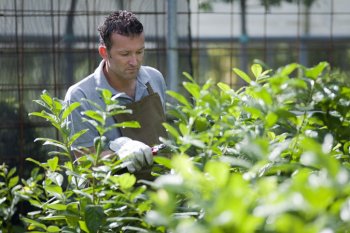
Plant Producer’s Summit
An Outcome of the Nursery & Garden Industries Proposal to Levy Plant Producers
On August 24th 2015 some 50 people met in Wellington with the purpose of exploring options for a new model for a plant producer-led industry body and to then establish a working group to advance summit outcomes and to develop a proposal for a plant producer-led industry body which can best progress common issues and opportunities. Prior to the summit it had been established by wider industry discussion that the following matters can be seen as the core issues or opportunities that are common across plant producers and best approached collectively :
-
A “strong voice to government” and others was a strong theme for collaborative action…advocacy on issues of concern to and impact on plant producers, and representation of the latter’s needs and views were both seen as critical to advancing industry good. Issues mentioned include IRD, Resource Management Act regional plans , IHS and Bio security (MPI)-further expanded in 2 below, Health & Safety, Building code (Fire reports), Plant Transport, Corrections Dept –prison labour, Water rights & damage, agrichemicals.
-
Biosecurity Matters were discussed often as a component of advocacy – these include access to new plants, rules concerning plant imports, post entry quarantine, export regulations, the National Plant Pest Accord, phytosanitary practices and plant transport hygiene. This included strong overall support for joining GIA and promoting and protecting nursery interests in this new and influential part of the biosecurity system.
- Labour capability and capacity. Growers noted we need to attract talent, promote career options, demonstrate career paths and develop future leaders. Of note, MPI’s 2014 Future Capabilities Report predicted a two-fold increase in labour demand in the nursery sector through to 2025, and in particular a shift to better qualified operators. Others noted gaps in tertiary level training and shortage of people skilled in management.
-
Research, Development and Extension – The nursery industry does not have strong focus on science or R&D. Many industries do have strong science programmes which attract government co-funding and provide networks to disseminate R&D finding to growers. Opportunities include soil health, compaction, endophytes, GPS, robotics, water (in and out), agrichemicals, media, diagnostics, genetics, traceability, energy and biodegradability. .
. It was unequivocally agreed that a collective industry voice is required. There was considerable further discussion on the common issues at an industry level and how these were best handled at a sector levels. As an individual business you could well find yourself under resourced in time, knowledge, resources and skills. A number of growers identified that it is also a very lonely, unsupported position to be in and they are looking for a sense of collegiality.
Attention turned to the form/model that the plant producer-led body could take. Defining the plant producer community and identifying the interest groups and stakeholders proved to be noticeably more difficult tasks. The definition was recorded as:
The class consists of units mainly engaged in propagating and or growing plants or parts of plants (reference, or not, “for sale” or “for commercial gain” was left undecided).
While interest groups (and NZFGA was recognized as one) were recorded, it was not determined as to whether they would be eligible for membership or associate membership or whether membership should be by sector or individual business.
A working group was appointed with Russ Ballard as chairman. The aim of which is to develop a proposal for a plant producer-led industry body which can best progress common issues and opportunities. Categories proposed by Malcolm Woolmore to give effective representation of the various interest groups were:
Amenity, re veg and forestry – Appointed from this sector: Patrick Murray and Terry Wearmouth
Ornamental, home garden and cut flowers –Appointed from this sector: Vince Wylaars, Greg Kitson, Peter Fraser, Andy Warren, Andrew Harrison, Kerry Sixtus, Grant
Food Crops – Appointed from this sector: Geoff Thorpe (Riversun) and Mike Simpson (Waimea)
The responsibility of the members of the working group is to:
-
Bring the perspectives of those they represent to the table, and to work collectively to achieve the best solutions/proposal for the good of the industry as a whole.
-
Maintain good two-way communication with those they represent to ensure the working group is transparent and grows consensus.
It is anticipated that 3-4 full day working group meetings will be required with modest engagement between meetings. Members travel and any associated accommodation and meal costs associated with working group meetings is to be funded. Members time at their own cost. The budget estimate is $42,000. NGINZ is prepared to pay half, there have been donations of $7,300 and AGMARDT (Agriculture Marketing and Research Development Trust) has agreed to fund $17300.
NGINZ will continue to keep the NZFGA informed of developments and seek feedback as the process evolves. A big thank you to the dedicated growers that have agreed to be part of the working group.



 Classifieds
Classifieds

